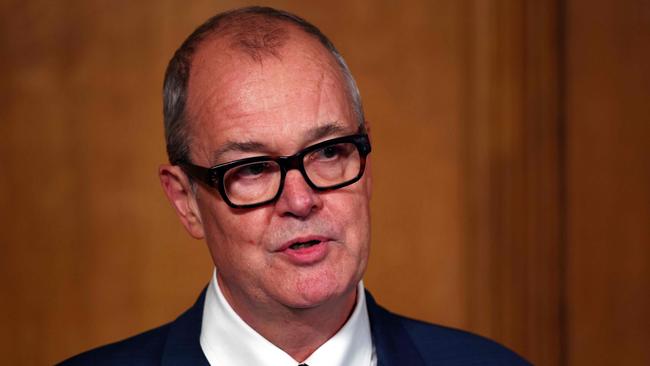
Last week’s decision by the federal government to adopt a net-zero emissions by 2050 target led to a mixed reaction, ranging from antipathy to support. Much of the discussion revolved around the approach of technology, not taxes, and the failure to release any formal modelling.
Much less attention was paid to two other important aspects of the announcement: the emphasis placed on choices not mandates, and that there is no intention to legislate the target, as has happened in a number of countries.
Take the first of these two: the primacy of choices over mandates. This is a very hot topic in a number of countries that have adopted the target. The mandates typically limit the choices people can make about how they heat their homes, what they eat, what kind of car they can drive and their travel plans.
In the UK, for instance, the Johnson government has announced the sale of all petrol- and diesel-powered cars will be banned from 2030. And as part of its Heat and Buildings scheme, the installation of gas boilers, that heat the vast majority of homes in the UK, will be banned from 2035. The alternative heat pumps don’t come cheap – about £10,000 – and require additional (costly) insulation in most homes.
The idea of mandates is being extended to the dietary habits of the population. UK Chief Scientific Adviser Sir Patrick Vallance has declared that people should eat less meat. In his view, it is a mistake to think the problem of climate change will be solved by “some magic new technology”.
He has called for a “change in personal behaviour”, throwing his weight behind Meatless Monday when people avoid eating meat on the first day of the week. He has told everyone (who is listening) that he has reduced his consumption of meat – one less piece of fillet steak per week, presumably. He supports “significant behavioural transformations” that include people taking fewer flights as well as changing their diets.
Talented and well-travelled actor/presenter Joanna Lumley has also got in on the act of calling for behavioural transformations by proposing the reintroduction of warlike rationing. According to her: “These are tough times, and I think there’s got to be legislation. That was how the war was – stuff was rationed – and, at some stage, I think we might have to go back to some kind of system of rationing, where you’re given a certain number of points and it’s up to you how to spend them, whether it’s buying a bottle of whisky or flying in an aeroplane.”
Lumley may not be aware of the inevitable black markets that develop as the result of any form of rationing. And, while people put up with rationing during the war, the attempt by politicians, including in Australia, to keep rationing going after the war was extremely unpopular with voters.
It’s easy to detect a very unpleasant form of condescension in these illiberal suggestions. What is effectively being proposed is that ordinary folk shouldn’t aspire to take a short overseas break – and clutter up popular tourist destinations – but important people, like Vallance and Lumley, who need to travel for work, will be exempt from the restrictions.
It’s not just in the UK where climate-based mandates (and behavioural nudges) are taking off. In New Zealand, the Climate Change Commission chair has called for “choosing to walk or cycle for short trips” as well as “car sharing or using public transport for longer trips”. New Zealanders are also being encouraged to “gradually swap meat for more vegetables, which will not only benefit your wallet and … health but also help save the planet”.
While there are now a relatively large number of countries that have adopted a net-zero emissions 2050 target, a much smaller number have chosen to put the target in legislation. These include the UK, France, Germany and New Zealand. On the face of it, this might be seen by voters as indicating the strength of a government’s commitment to climate action and achieving the target. What has happened in practice, however, is that legislation has encouraged various groups to take legal action against the relevant governments, both locally and at the national level.
In July, for instance, 100 New Zealand lawyers initiated action against the Climate Change Commission “alleging that its recommendations to the Minister for Climate Change violated the New Zealand Climate Change Response Act and Paris Agreement”. It is held that the “commission’s carbon budgets are inconsistent with holding warming to 1.5C, that it understated the required emissions reductions and unlawfully relies on the uncertain prospect of paying other countries to reduce their emissions”. The case is before the courts but it is extremely unclear how judges could be expected to rule on what is essentially a scientific matter. Similar legal action has also tied up the courts in France and Germany.
At the other end of the spectrum, a group of climate activists in the UK recently took a local government to court to stop it from proceeding with road repairs. The argument put was that repaired roads encourage more driving, which, in turn, is bad for the climate.
While our federal government has declared it doesn’t intend to legislate the net-zero target, the Labor Party has signalled its willingness to do so. There are some pitfalls in taking the legislation path, including preventing governments from setting and implementing policy. In Australia’s case, it’s easy to see legal objections being raised in relation to any proposed fossil fuel projects.
Surveys consistently show voters regard climate change as an important issue that needs to be tackled. These same voters declare they are only prepared to pay a small price personally to ensure this happens. And after two years of pandemic-related mandates, the public may well be unhappy about being instructed to change their way of life to “help the climate”. While legislation may sound an attractive route, there are enough examples to indicate there are some significant unintended consequences arising from legal action taken by small groups of activists.



